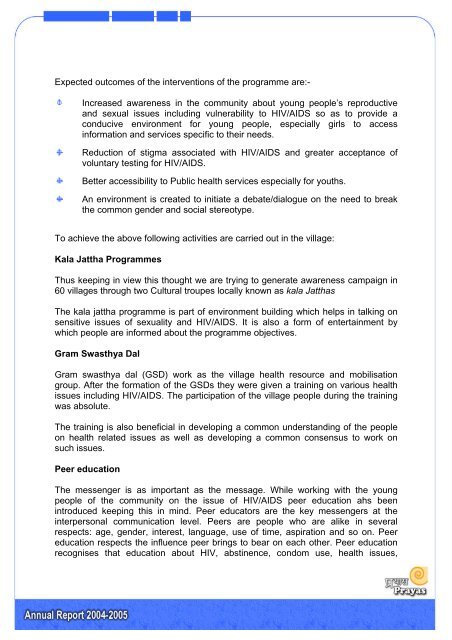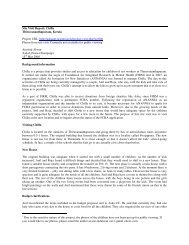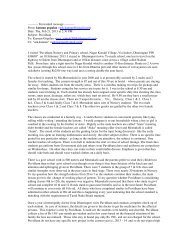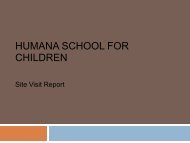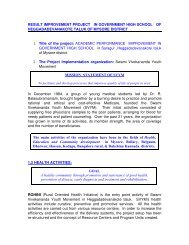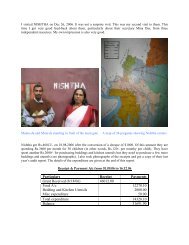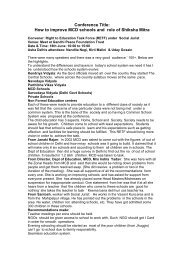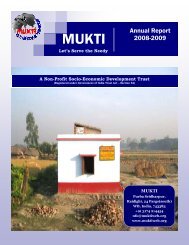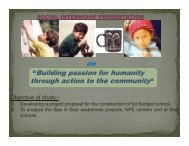Annual Report 2004-05 - Asha for Education
Annual Report 2004-05 - Asha for Education
Annual Report 2004-05 - Asha for Education
Create successful ePaper yourself
Turn your PDF publications into a flip-book with our unique Google optimized e-Paper software.
Expected outcomes of the interventions of the programme are:-<br />
Increased awareness in the community about young people’s reproductive<br />
and sexual issues including vulnerability to HIV/AIDS so as to provide a<br />
conducive environment <strong>for</strong> young people, especially girls to access<br />
in<strong>for</strong>mation and services specific to their needs.<br />
Reduction of stigma associated with HIV/AIDS and greater acceptance of<br />
voluntary testing <strong>for</strong> HIV/AIDS.<br />
Better accessibility to Public health services especially <strong>for</strong> youths.<br />
An environment is created to initiate a debate/dialogue on the need to break<br />
the common gender and social stereotype.<br />
To achieve the above following activities are carried out in the village:<br />
Kala Jattha Programmes<br />
Thus keeping in view this thought we are trying to generate awareness campaign in<br />
60 villages through two Cultural troupes locally known as kala Jatthas<br />
The kala jattha programme is part of environment building which helps in talking on<br />
sensitive issues of sexuality and HIV/AIDS. It is also a <strong>for</strong>m of entertainment by<br />
which people are in<strong>for</strong>med about the programme objectives.<br />
Gram Swasthya Dal<br />
Gram swasthya dal (GSD) work as the village health resource and mobilisation<br />
group. After the <strong>for</strong>mation of the GSDs they were given a training on various health<br />
issues including HIV/AIDS. The participation of the village people during the training<br />
was absolute.<br />
The training is also beneficial in developing a common understanding of the people<br />
on health related issues as well as developing a common consensus to work on<br />
such issues.<br />
Peer education<br />
The messenger is as important as the message. While working with the young<br />
people of the community on the issue of HIV/AIDS peer education ahs been<br />
introduced keeping this in mind. Peer educators are the key messengers at the<br />
interpersonal communication level. Peers are people who are alike in several<br />
respects: age, gender, interest, language, use of time, aspiration and so on. Peer<br />
education respects the influence peer brings to bear on each other. Peer education<br />
recognises that education about HIV, abstinence, condom use, health issues,


